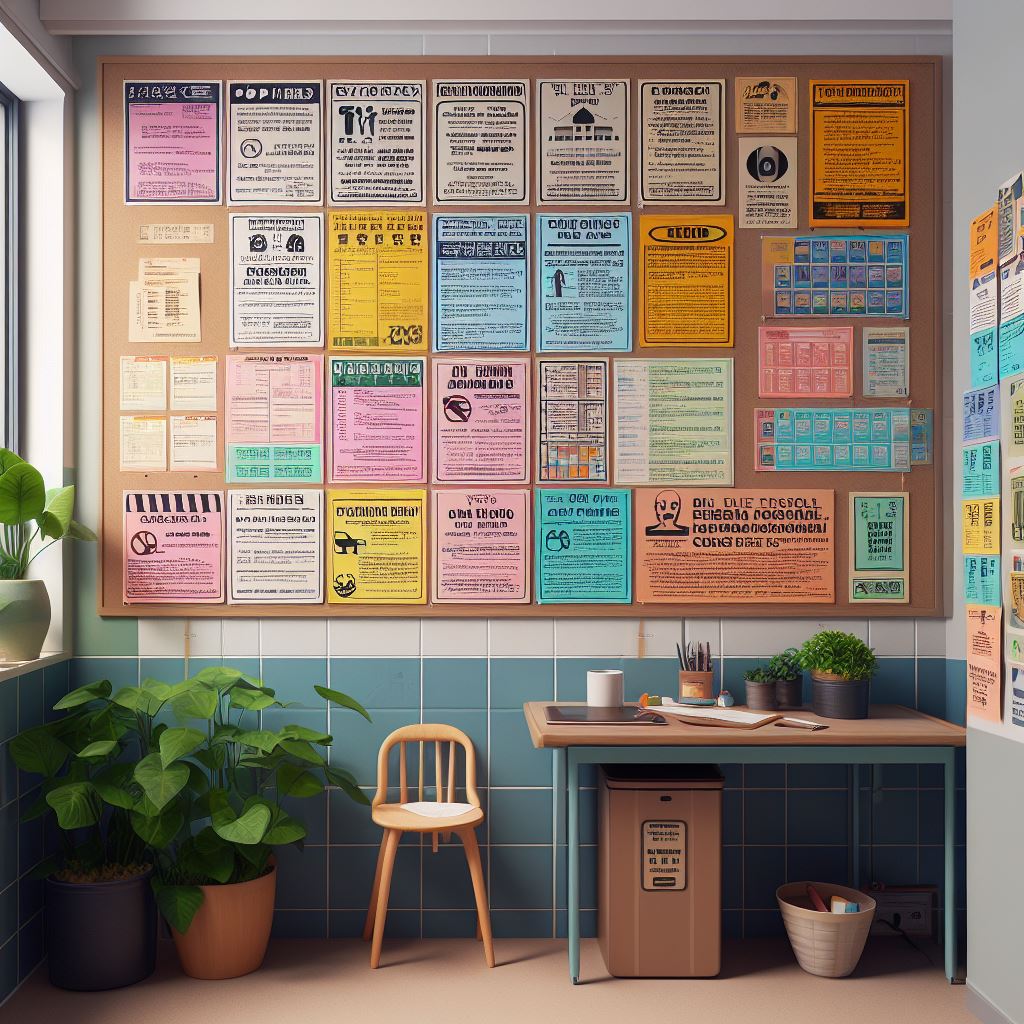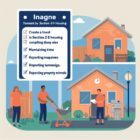Checklist: Tenant Compliance Rules in Public Housing

Are you a tenant living in public housing? If so, it’s important to understand and follow the compliance rules set in place.
This checklist will provide you with all the necessary information you need to ensure you are eligible for housing, make your rental payments, and maintain your unit.
Additionally, you’ll learn about community rules, safety measures, and behavior expectations.
Stay informed and compliant to make the most of your public housing experience.
Key Takeaways
- Complete the application accurately and provide necessary documentation
- Understand rental payment and lease agreement terms
- Report maintenance issues promptly and keep the unit clean
- Follow community rules and behavior expectations, as well as safety and security measures
Application and Eligibility Requirements
To successfully apply for public housing, you must meet the application and eligibility requirements set forth by the housing authority. These requirements are in place to ensure that individuals who truly need assistance are given priority and that the limited resources available are allocated fairly.
The first step in the application process is completing the application form accurately and providing all the necessary documentation. This includes proof of income, identification documents, and any additional paperwork required by the housing authority.
It’s important to review the eligibility criteria carefully and ensure that you meet the income limits, household size requirements, and any other specific qualifications outlined by the housing authority. Failure to provide accurate information or meet the eligibility criteria may result in your application being denied or delayed.
It’s also important to note that some housing authorities may have specific preferences or priorities, such as giving priority to veterans or individuals with disabilities. Therefore, it’s crucial to familiarize yourself with these preferences and ensure that you meet any additional requirements if applicable.
Rental Payment and Lease Agreement
Make sure you understand the rental payment and lease agreement requirements in public housing to ensure compliance as a tenant. It is crucial to be aware of the terms and conditions set forth in your lease agreement, as well as the guidelines for making rental payments. Familiarizing yourself with these requirements will help you avoid any potential issues or misunderstandings.
To provide you with a clear overview, here is a table outlining the key rental payment and lease agreement requirements in public housing:
| Requirement | Description |
|---|---|
| Timely Payment | Pay your rent on time, according to the agreed-upon schedule. |
| Payment Method | Understand the accepted forms of payment, such as online payment or money order. |
| Late Payment Penalties | Be aware of any penalties or fees that may apply if your rent payment is late. |
| Lease Term | Understand the duration of your lease agreement and any provisions for renewing or terminating it. |
| Maintenance Responsibilities | Comply with your responsibilities for maintaining the property in good condition. |
| Occupancy Limits | Adhere to the occupancy limits specified in your lease agreement to avoid violating any regulations. |
Maintenance and Repairs
Ensure that you fulfill your maintenance and repair responsibilities as a tenant in public housing. Taking care of your rental unit ensures a safe and comfortable living environment for yourself and your neighbors. Here are some key points to keep in mind:
- Report maintenance issues promptly: If you notice any damages or malfunctions in your unit, notify the housing authority or property management immediately. This includes problems with plumbing, electrical systems, heating, or cooling.
- Keep the unit clean: Regularly clean your unit to prevent the buildup of dirt, dust, and pests. This includes vacuuming or sweeping the floors, wiping down surfaces, and properly disposing of garbage.
- Maintain the exterior: As a tenant, you’re responsible for maintaining the cleanliness and appearance of the exterior areas assigned to you, such as balconies, patios, or yards. Make sure to keep these areas free of debris and well-maintained.
- Preventive maintenance: Take proactive steps to prevent damage in your unit, such as regularly changing air filters, testing smoke detectors, and addressing small repairs before they become bigger issues.
Community Rules and Behavior Expectations
Follow the community rules and behavior expectations as a tenant in public housing to maintain a harmonious living environment for all residents. It is important to be aware of and adhere to these guidelines in order to promote a sense of respect, safety, and cooperation within the community. The following table outlines some of the key rules and expectations that tenants should be familiar with:
| Community Rules | Behavior Expectations |
|---|---|
| Keep common areas clean | Be respectful of others’ privacy |
| Follow noise regulations | Maintain a peaceful atmosphere |
| Dispose of trash properly | Avoid littering or leaving debris |
| Respect quiet hours | Refrain from excessive noise during designated times |
| Comply with pet policies | Ensure pets are well-behaved and properly cared for |
Compliance With Safety and Security Measures
To ensure the safety and security of yourself and your fellow residents, it’s important to abide by the designated safety and security measures in public housing. These measures are put in place to protect everyone living in the community and maintain a secure living environment. Here are some key compliance rules to keep in mind:
- Lock your doors and windows: Always remember to lock your doors and windows when you leave your unit or go to bed. This simple step can prevent unauthorized access and potential intrusions.
- Report suspicious activities: If you notice any suspicious activities or individuals in the community, it’s crucial to report them to the appropriate authorities or management. Your vigilance can help prevent potential security threats.
- Follow fire safety protocols: Familiarize yourself with the fire safety protocols in your public housing complex. This includes knowing the location of fire extinguishers, emergency exits, and fire alarms. Additionally, never tamper with or disable any fire safety equipment.
- Be mindful of personal safety: While public housing communities strive to provide a safe environment, it’s still important to take precautions for your personal safety. Avoid walking alone at night, especially in poorly lit areas, and be aware of your surroundings.
Frequently Asked Questions
What Is the Process for Reporting a Maintenance Issue in Public Housing?
To report a maintenance issue in public housing, you should first contact your property manager or maintenance staff. They will guide you through the process and ensure that your concern is addressed promptly.
Are There Any Restrictions on the Number of People Who Can Live in a Public Housing Unit?
Yes, there are restrictions on the number of people who can live in a public housing unit. The specific guidelines for occupancy limits vary depending on the size and type of the unit.
Can Tenants Make Modifications or Improvements to Their Public Housing Unit?
Yes, you can make modifications or improvements to your public housing unit. However, there may be certain rules and regulations in place that you need to follow. It’s important to check with your local housing authority for specific guidelines.
What Are the Consequences for Violating Community Rules and Behavior Expectations in Public Housing?
If you violate community rules and behavior expectations in public housing, you face consequences such as warnings, fines, or even eviction. It’s important to follow the rules to maintain a safe and harmonious living environment.
How Often Are Safety and Security Measures Reviewed and Updated in Public Housing?
Safety and security measures in public housing are regularly reviewed and updated. It is important to ensure that the environment remains safe for all residents. Regular assessments help identify any potential risks and implement necessary changes to maintain a secure living environment.



